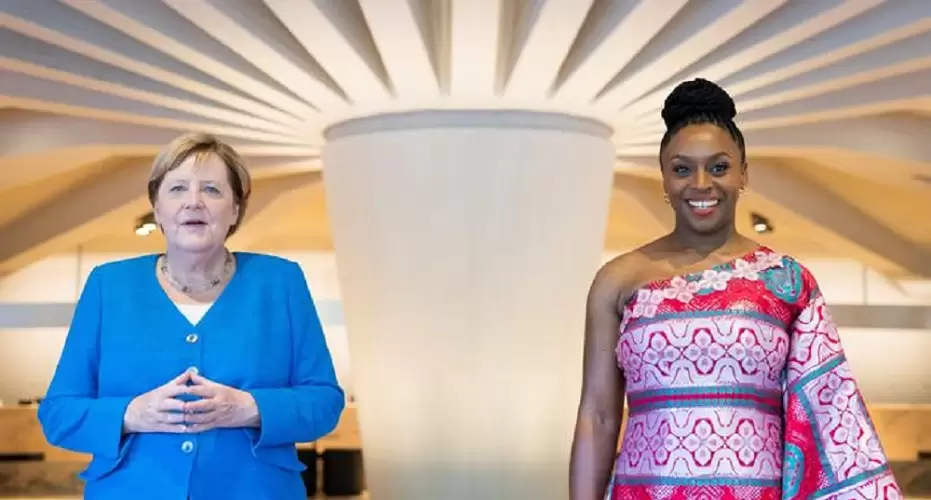Why Power Supply Deal Between Nigeria, Siemens Has Not Been Successful—Merkel
Nigeria’s literature prize winner, Amanda Ngozi Adichie, has forced German Chancellor, Angela Dorothea Merkel, to give a clue on why the $2bn Siemens- Nigeria electricity deal signed in 2019 to help improve electricity generation for Nigeria’s over 200 million people has not achieved the 7,000 megawatts target after two years.
In July 2019, the Federal Government sealed a power deal with Siemens AG to increase Nigeria’s electricity generation to 25,000 megawatts (MW) in six years.
Advertisement
As of the time of signing the agreement, Nigeria’s electricity generation for its over 200 million population was a paltry 4,000 megawatts, while the country has a capacity of 12,000 MW.
Nigeria signed the agreement on the basis of what Siemens achieved in Afghanistan and Ghana, the Nigerian government was supposed to provide 15 percent funding.
The project was meant to be implemented in three phases.
Adichie asked, “We were told that Siemens had done this miraculous work it has done in Afghanistan, may be Iran I think, with electricity and that Siemens will then fix electricity problem which has been the bane of Nigeria really since its independent. And we were told that this had the full backing of Chancellor Markel and the German government and we were all very excited.
Advertisement
“And it’s two years later and nothing has happened, so I wanted to know if you know anything about it and of course not holding you responsible for Siemens, but really we were told that the German government had made this happen.
“So, I am just wondering why we still don’t have light?”
But Merkel told Adichie that the issue with the project was tied to funding of the project.
Markel, who is one of the most powerful female politicians named poor funding and the issue of local content as the issue when both women appeared as guest speakers at a panel held at the Düsseldorf’s Schauspielhaus.
She said, “I will make a point of going to ask Siemens what happened. There are several reasons and one of the reasons is that there were problems to do with funding. Very often when investments are supposed to take place, people ask about what ways of financing are available.
Advertisement
“We made a mistake a couple of years ago because people say that the minute you appear with your company since you don’t provide the right financing that you will easily get the job done, you will always have that aspect of financing dealt with.”
She said the Nigerian government was demanding too much local content for the German investor.
“I will go back and try to… I will get back to you, you will get your answer,” Markel added.
Late Abba Kyari had visited Germany in 2020 for the purpose of the deal.
Based on the funding structure of the project also called the Presidential Power Initiative (PPI) 85 per cent will come from a consortium of banks, guaranteed by the German government through credit insurance firm, Euler Hermes.
The Nigerian government will provide 15 per cent of counterpart funding.
Advertisement
The funding has a 2–3 years moratorium and 10–12 years repayment, at concessionary interest rates.
In July 2020, President Muhammadu Buhari through his media aide, Tolu Ogunlesi, said the administration has approved the sum of N8.64bn as part of counterpart funding.
He said, “This Phase 1 focused on “quick-win” measures to increase the end-to-end operational capacity of Nigeria’s electricity grid to 7 GW. Transmission projects proposed under Phase 1 include 132/33 kV Mobile Substations; 132/33 kV(60 MVA) Transformers, and Containerized GIS Substations.”
Two years later after sealing the deal, the country’s electricity generation still remains at a meager average of 400 megawatts. It fell badly to 3,567.30 megawatts as of April 13.



